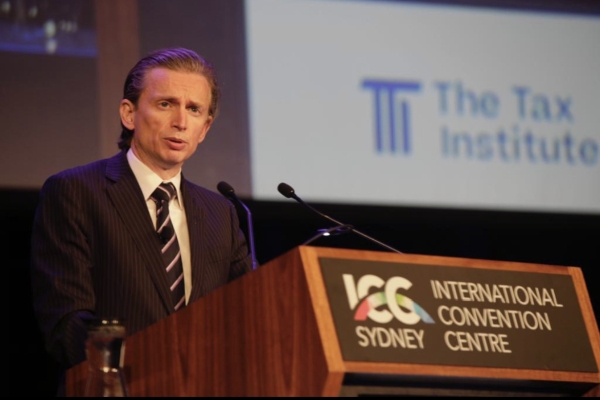Published on the 26/10/2022 | Written by Newsdesk

Experts call on transformation for Aussie tax system…
With debate around Federal Budget 2022 in full force, tax leaders from around Australia came together at last week’s Tax Summit 2022 to urge the tax community to adopt a more data-driven mindset in order to ensure the nation’s tax system evolves and adapts to meet the needs of individuals and businesses.
Improving a ‘broken’ system
Karen Payne, Inspector General of Taxation and Taxation Ombudsman (IGTO) revealed she’s interested in seeing how data can be used to improve the system.
“If you’re not capturing reliable data, which we’re advised is not being done – partly because it is a manual system – then how are you ever going to identify where the opportunities are for improvement? And I’d like to encourage that we should move to that [data-centred] mindset to actually improve our tax administration system.”
“Data is not gold. Data is uranium.”
According to Payne, objections to an assessment, even if sent via email, are not being properly recorded because the process is paper-based and completely manual. She said this creates questions about the quality of the data that is available for monitoring the objection process and improving the system.
“Why are more than 50 percent of individuals having to object to amend their own assessment?” Payne asked. “I think that’s odd, and I would like to know more about that.”
Having more data and better integrity of data is key to improving the system and bringing it up to speed with the 21st century, Payne insisted.
Data is not gold, it’s uranium
ATO Second Commissioner Jeremy Hirschhorn highlighted how digitisation is about integrating ATO systems with natural systems as much as possible.
He wants to move tax reporting and payment closer to the taxable event.
“Often that may require policy changes. It may require designing the [tax] system around verifiable data, rather than constantly trying to find data to bolster the system. Importantly, it doesn’t mean that all data must sit in ATO systems and be analysed there, in fact it may mean the opposite.”
“In many cases, it may be more natural to move some of the ATO’s systems to the natural systems rather than require customers to send us information for checking. As someone in the room today once described it to me, data is not gold. Data is uranium. So, before you get it, you better know how you are going to use and store it. And there needs to be a very good reason for owning it.”
Managing sensitive data at scale
Of course, with personal data, or commercially sensitive data, increasingly being shared between banks, super funds, tax agents and the ATO, there’s a larger attack surface for cybercriminals. Hirschhorn stated that the ATO was aware of this and taking all the necessary precautions.
“The flip side of digitisation is cybersecurity,” he said. “There is [the possibility] of cyber-enabled identity fraud and cyber-enabled information theft. In the time it takes me to make this speech, there will be 4,000 attempted hacks on the ATO’s system. There are three million attempted hacks of the ATO’s system every month.”
“The systems of tax agents and super funds are also a ripe source of data. Increasingly, we see cascading penetration attempts, where criminals attempt to obtain information from different devices before putting it together for a fraud attempt… the Optus data breach has really brought home how vulnerable many businesses and organisations are to attack and dispelled any sense of hubris. That’s a topic on its own but the ATO will continue to strengthen our safeguards and think about how we can help the broader ecosystem that you [tax agents] are part of.”
‘Mood is right’ for reforms
Economist and renowned ‘data whisperer’ Elisa Choy predicted the outcome of the last Australian election with unnerving accuracy. She forecast the Liberals would lose lots of seats but the ALP would only gain a handful. (She said Labor would win 76 seats, they got 77.)
As Founder and Managing Director of Maven Data, Choy revealed what people engage with online “shapes their perception of the world, which in turn creates a feeling.”
By leveraging AI/ML technology to analyse “at speed” the vast amounts of data created every second through online interactions Maven Data derives insights to understand what Australians are feeling at any given moment, often without being consciously aware of it, then predict how they are likely to behave.
Choy revealed her data analysis has uncovered the following:
“Unsurprisingly, thinking about tax is a downer for most Australians. Surprisingly, Australians are currently open to tax reform, presumably as a result of recent economic and possibly geopolitical instability.”
According to Choy, a majority of Australian voters would accept Anthony Albanese both walking away from the Stage Three tax cuts and may even be open to him introducing a carbon tax.
“It’s very rare to find sentiment in the transformational phase,” she added. “This is a unique window for the tax industry to influence and shape this conversation because Australia is ready to discuss tax reform.”
About The Tax Summit
The Tax Summit is hosted by the Tax Institute, which is the leading forum for the tax community in Australia. Their reach includes membership of 12,000 tax professionals from commerce and industry, academia, government and public practice and 40,000 Australian business leaders, government employees and students. Read more at taxinstitute.com.au.



























